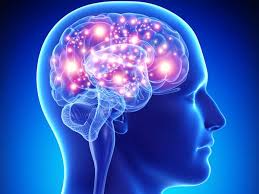 Last month, The Telegraph reported, “Dementia is now Britain’s biggest killer, overtaking heart disease for the first time, new figures have shown.”
Last month, The Telegraph reported, “Dementia is now Britain’s biggest killer, overtaking heart disease for the first time, new figures have shown.”In America, it is the 6th leading cause of death, and since the year 2000, death by heart disease has been declining, and deaths from Alzheimer’s disease have increased by 89%.
Dementia is a huge problem and it is growing every single day.
From the Broken Brain docuseries, we learned that dementia is not a normal part of aging, and we also learned that there are so many factors, beyond our genes, contributing to this brain disorder.
Experts are now calling Alzheimer’s disease Type 3 diabetes. New research shows insulin resistance is one of the major factors that starts the brain-damage cascade, which robs the memory of over half the people in their 80s, leading to a diagnosis of Alzheimer’s disease.
When my patients are dealing with memory loss, these are the first eight steps that I take in their treatment plan:
- Balance your blood sugar with a whole-foods, low-glycemic diet. You can achieve this by taking out the bad stuff (refined carbs, sugar, alcohol, caffeine, processed foods, dairy, and also inflammatory omega-6-rich oils, such as vegetable and seed oils) and putting in the good stuff (healthy fats like avocados, walnuts, almonds and cashews, grass-fed meats, pastured chicken and eggs, olive and coconut oil).
- Eat healthy fats that make your brain happy. These include omega-3 fats in wild fatty fish, as well as coconut oil, extra-virgin olive oil, avocados, whole eggs, nuts, and seeds.
- Exercise daily. Even a 30-minute walk can help. More active readers might want to incorporate high-intensity interval training or weight lifting. Studies show physical activity can prevent and even slow down the progression of cognitive decline and brain diseases like dementia.
- Supplement wisely. At the very least, take a multi-vitamin and mineral supplement, an omega-3 fat supplement, extra B6, B12, and folate, as well as vitamin D3. And, a good probiotic will enhance the brain-gut relationship. You can find all of these and other supplements in my store.
- Check your thyroid and sex hormone levels. If they are out of balance, you will want to treat them.
- Detox from mercury or other heavy metals, if you have high levels, by doing a medically supervised detox program.
- Control stress levels. Chronic stress takes a toll on your body and brain. Relaxation isn’t a luxury if you want to prevent or reverse dementia. Whether that involves deep breathing, meditation, or yoga, find something that helps you calm down.
- Get eight hours of sleep every night. Studies show poor sleep becomes a risk factor for cognitive decline and Alzheimer’s disease. Aim for at least eight hours of quality sleep every night.
This is just a start, but these eight strategies go a long way in giving your brain a chance to heal, recover, and experience fewer memory problems.
Wishing you health and happiness,
Mark Hyman, MD
Mark Hyman, MD
